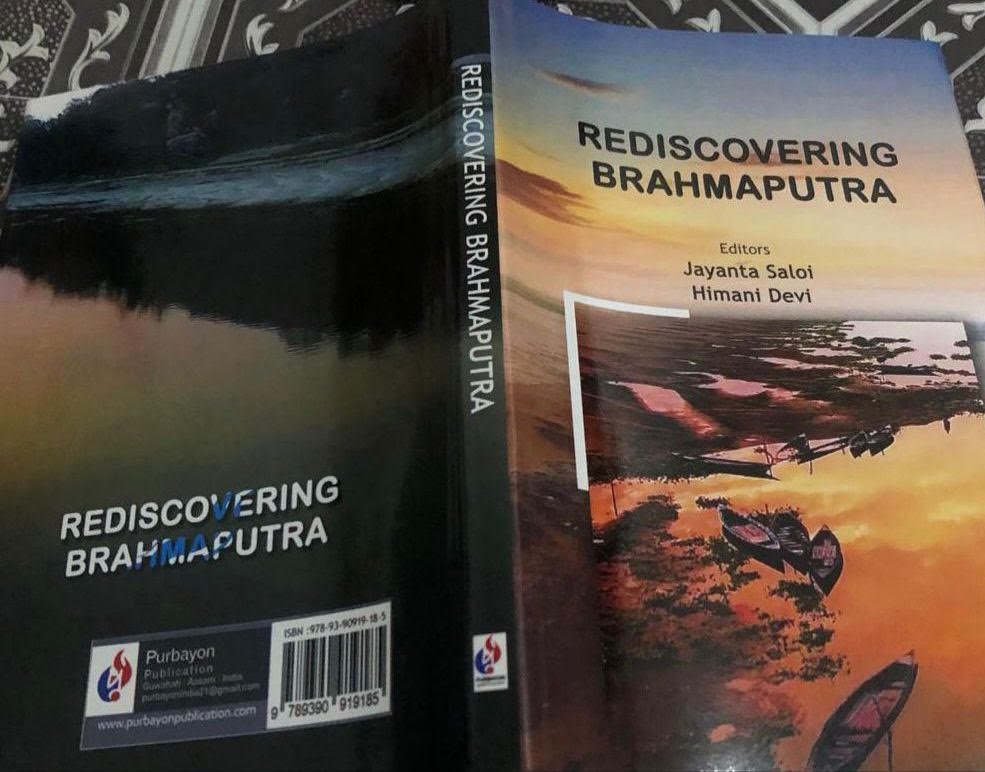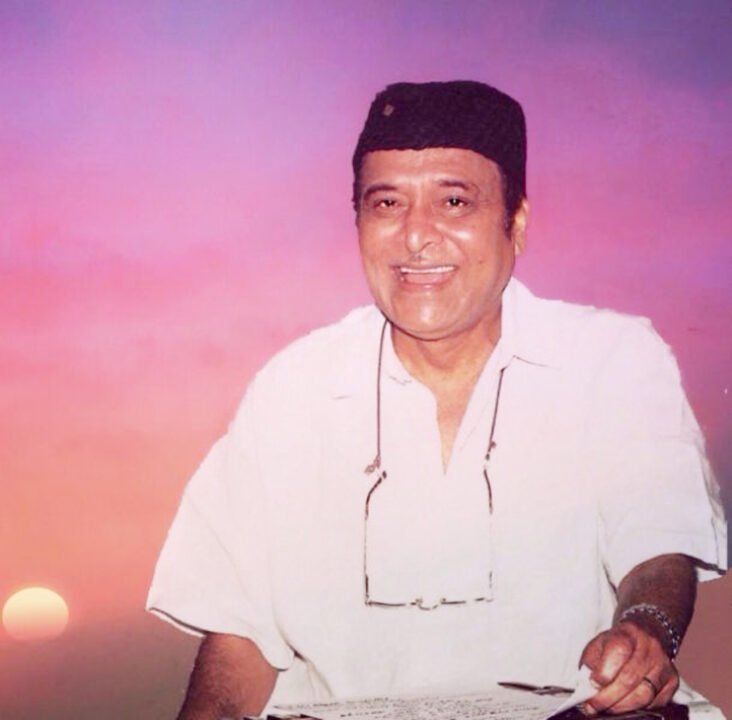By: Dr. Ratan Bhattacharjee
I still remember the year when Nelson Mandela came to Kolkata and we published a special issue on Mandela that year from Yuba Manash. In that great event, a ballad was written by Bhupen Hazarika on Mandela in Assamese and since then we have heard it quite a few times and have often reminisced fondly over it later when I went to Assam be it Guwahati University or Cotton College during my stay in Assam as Head of the Dept of English of Mankachar college. Hazarika sang the song at Kolkata’s Eden Gardens in the presence of Mandela. Later he himself became a legendary figure in the world of Assamese, Bengali and Hindi Music world. A child prodigy, Bhupen Hazarika wrote his first song at 11 or 12. His inclination towards singing developed because as a child he grew up listening to tribal music. He inherited his singing skills from his mother, who sang lullabies to him and introduced him to the folk music of Assam. His talent was spotted by noted Assamese lyricist Jyotiprasad Agarwala and artist Bishnu Prasad Rabha. According to him, he used one of his mother’s lullabies in the movie Rudaali (1993). With professional guidance of Jyotiprasad Agarwala and artist Bishnu Prasad Rabha he came out of the state and emerged as a music legend in the later period. All these are known stories in Assam and West Bengal for the music lovers. After receiving his early education from high schools in Guwahati, Dhubri and Tezpur, Hazarika joined the Banaras Hindu University from where he received his BA degree in 1944 and MA degree in political science in 1946. He briefly worked at the All India Radio station at Guwahati before embarking for his doctoral studies at Columbia University. He joined the Columbia University, New York, and earned his doctoral degree in 1952. His thesis “DEMYSTIFYING DR. BHUPEN HAZARIKA: envisioning education for India”, edited by Tej Hazarika and published by Cool Grove Press available in the US in days. Soon after completing his education, he became a teacher at the Guwahati University. Hazarika began close association with the leftist Indian People’s Theatre Association soon after returning from the US in 1953 and became the Secretary of the Reception Committee of the Third All Assam Conference of IPTA, held in Guwahati in 1955.
Credited with introducing the culture and folk music of Assam and Northeast India in Hindi cinema at a national level, he composed and sang songs which are marked by themes of humanity and universal brotherhood. ‘Rupahi Asomor Sonali Geet’ was released in 2006 and ‘Rim Jhim Rim Jhimm Lyrics’ in 2018 in which his songs could be heard with Nachiketa of Bengal. These two music album captured the golden moment of Bhupen Hazarika music which had a connection with Bengal. Hazarika’s talent reached new heights and he expanded his creative career even outside the state. He worked in Hindi cinema, and some of his major contributions include composing music for films such as Arop, Ek Pal, and Rudaali. In 1926 Bhupen Hazarika was born in Sadiya of Assam. Popularly known as ‘Sudhakantha’, his versatility was amazing. Poet, music composer, singer, actor, author, and filmmaker, Bhupen Hazarika beautifully focused on Assam’s rich folk heritage through his songs. Bhupen Hazarika was awarded the Best Music Director National Award for Rudaali in 1993 and held the position of chairman at the Sangeet Natak Akademi from 1998 to 2003. Dr Bhupen Hazarika was also decorated with high honours, including the Padma Shri (1977), Padma Bhushan (2001), Padma Vibhushan (2016), and Dadasaheb Phalke Award (1992). Bhupen Hazarika was honoured with the Asom Ratna, Assam’s highest civilian award in 2009. Later he became a film director and made award-winning Assamese films Shakuntala Sur (1961) and Pratidhwani (1964). Some of his directorial ventures include Lati-Ghati (1966), Chik Mik Bijuli (1969), For Whom the Sun Shines (1974) and Mera Dharam Meri Maa (1976). He also composed music for many Assamese and Bangla movies such as Aarop (1973), Chameli Memsaab (1975) and Shimana Perye (1977).
In New York, His songs gradually developed the social content and songs like ‘Manuhe Manuhor Babe’, ‘Ganga Amar Ma’ made him a household name both in Assam and Bengal. Hazarika befriended Paul Robeson, a prominent civil rights activist, who influenced him to compose the famous song Bistirno Parore which is based on the imagery and theme of Robeson’s Ol’ Man River. This song, considered as one of his epical compositions, has been translated in various Indian languages. He was involved with the All Assam Conference of Indian People’s Theatre Association. He taught at the Gauhati University but left the job after a few years and shifted to Kolkata.
The music legend also had a brush with politics. Between 1967 and 1972, Hazarika was an independent MLA. In the 2004 elections he unsuccessfully contested the Guwahati Lok Sabha seat on a BJP ticket. India’s longest road bridge Dhola-Sadiya, built over river Lohit (Assam), is referred to as Bhupen Hazarika Setu. Guwahati’s Barsapara Cricket Stadium was renamed as Dr. Bhupen Hazarika Stadium (2010). A docu-feature film on Hazarika’s life titled Moi Eti Zazabor (I am a wanderer), which was jointly directed by late Waesqurni Bora and Arnab Jan Deka has been under production since the year 1986. He was also considered as a new trend setter in Bengali music. The famous musical genre of West Bengal, the Jivanmukhi Geet started by Kabir Suman and especially Nachketa Chakraborty in 1990’s Bhupen Hazarika composed music for films from Bangladesh too which got international acclaim. From early in his life, he was at the forefront of a social battle against the entrenched forces of casteism that sneered at a member of the Koibarta community making it as a musician of note, and kept him away from the upper-caste Brahmin woman he had loved. Eventually, when the spirited Hazarika did marry, it was to a Brahmin woman, his revenge of sorts against a caste-ridden society He was introduced to Kalpana Lajmi in the early 1970s by his childhood friend and India’s top tea planter Hemendra Prasad Barooah in Kolkata. Bhupen Hazarika mainly concentrated on Hindi films, most of which were directed by Kalpana Lajmi. Ek Pal (1986), Rudaali (1993) and Daman (2001) major films of this period. Many of his earlier songs were re-written in Hindi and used as played-back songs in these films. These songs tried to cater to the Hindi film milieu and their social activist lyrics were browbeaten into the lowest common denominator. What was uncanny however was his ability to bring the world to the people of Assam, long before globalisation made the word smaller. Sangeeta Barooah Pisharoty wrote in The Wire, “It was a voice that was not just Assamese alone but also northeastern, pan-Indian and global. An unparalleled talent, the likes of which still haven’t been discovered in Assam till today. At the age of 85, the voice finally went silent on a November day in 2011 on a hospital bed of Kolkata.” (The author is an Associate Professor and Head of Post Graduate English Dept Dum Dum Motijheel College Kolkata and a trilingual poet may be reached at profratanbhattacharjee@gmail.com)







